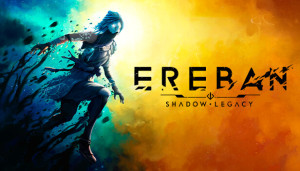The Game That Wouldn’t Be - The False Promise of Gameplay Trailers
__large.jpg)
Back in the day, E3 was the highlight of a gamer's year. Millions sat in front of YouTube, and the show became the hot topic of conversation for months to follow. The hype of the next-gen had me and others cue in front of stores and refresh the pre-order page endlessly - yet, as with all high-expectations scenarios, disappointment often followed.
It's harsh to say that games are just now not delivering up to the expectations of gameplay trailers; there were always bad examples. However, it's not intuition but history that backs up our complaints of something feeling off.
The hype of trailers is going up, yet the excitement of finally playing the game on mobile, console, PC, or even around E3 - is going down. As a fellow gamer nostalgic for the days of glory, I want to take on a question that only makes sense now.
Why Promise and Underdeliver When You Know People Will Notice?
It seems evident that the reason is selling, yet the deeper I dug into some games, the more I discovered what drove the company (or at least the owners!) to do so.
Upfront, I'll say it's not always a matter of a "hit and run" scheme part of an evil master plan from companies. In fact, bad planning is the main reason why this happens.
Something has changed in the last decade, but what is it?
False advertising is not new; thinking about how we still advertised cigarettes using baby images half a century ago makes that clear. The problem with gaming, as with all creative industries, is the subjectivity that goes into what's false and what's not.
What happened in the last decade is that the gaming industry is expanding more than ever. Still, bigger numbers and new business models are leading the charge rather than big legacy titles like the legacy Resident Evils, Metal Gears, etc.
Blend the element of subjectivity, companies and indie developers wanting to cut a piece of tastier pie, and everyday hypes about new tech; you get tighter timeframes to finish games and additional pressure from all sides.
All the above led to the 'shortcut' or being 'forced' to promote a gameplay no one has ever seen before, just as all this new flashy tech promises. No one but the gamers can punish them anyway.
I'm not accusing the developers directly, as it's true that, like every creative passionate about games, they would want to nail the expectations and make their masterpiece. The problem lies beyond individuals or teams of tech people in how decisions are made, who calls the shots, and how the gaming and advertising industry works.
Among the many, here are the back stories of massive disappointment.
No Man's Sky - A Galactic Failure
Everyone remembers No Man's Sky, but no one for any good reason. The game hyped the gameplay as much as it promised to answer, in a very engaging way, what physicists and mathematicians have been dwelling on for ages - infinity and the center of the Galaxy!
The promise of exploring every planet and engaging with other players to find the galaxy's center turned out to be not a hype but a proper lie. It was too good to be true cause it was not true.
2016 was the year when graphics and processing speeds skyrocketed, and the team decided to ride on the hype wave - yet they were soon faced with the problem of not being able to make it happen, no matter how much money was invested in the making.

Anthem - The Other Way Around
Anthem is remarkable because it came from a giant in the industry, EA, but used a tactic only a newbie would think of. Make a majestic few minutes of gameplay for E3, stun the crowd, and if they really like it and are already pre-ordering, only then actually start developing the game!
EA fell prey to the 'do-it-all' RPG hype where every company promised unlimited possibilities and a fighting mechanism that would put Call Of Duty to shame. Same as with No Man's Sky, the budget and time needed for those 5 minutes to expand into 30 hours were astronomical.

Hero Wars - The Way Mobile Goes
Mobile games deserve their own personal rant, one that belongs in the last circle of monetization and fake gameplay hell. And I'm not talking about the online slots which are its own lately, but full-blown apps. Hero Wars might just be in the cauldron, still avoiding the blame for the weird, to say the least, ads by adding a small "Not actual gameplay" below the screen.
While there's always the good and the bad in every E3, it generally falls down to a false promise. If you go on the Play or App Store, almost none of the titles will hold up to the ads and screenshots in their profiles, as the oversaturation of mobile games made it a standard way of doing things. Get as many eyeballs as possible, and you're ok is the rule!
What's worse is that when you think the game is not that bad, you get hit by in-game ads and loot boxes for 'only' a few cents! The dumpster fire is real and is not the player's fault!

Will the Trend Change?
Cinematic ads to get people to watch more seconds of the ads will always be a thing. The biggest culprit might not even be companies making the games but the ones setting the standard for ads. YouTube, Google, and Apple, who run the networks, pushed competition for good looks and stretched budgets to the limits.
All is not lost, though; various good actors from the major corps or the Indie world deliver. A common trend happening all around is making the game 'modest' in terms of first looks but then hiding a whole mountain of depth in the gameplay. It's smart and a sure way to exceed expectations. The return of 2D platformer games is the best example of this.









